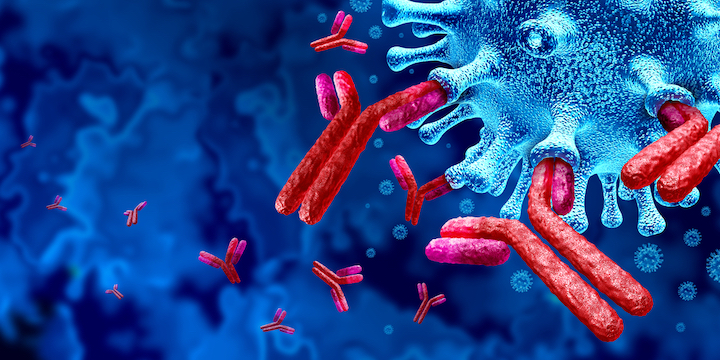Good news for the Pfizer and Moderna vaccines. These two messenger RNA vaccines would remain effective against the Indian variant of the coronavirus, according to preliminary work carried out by American scientists at New York University.
Made public on May 17 on the site BioRxiv, this research still needs to be validated by peers before being published in a scientific journal but offers positive signals.
Synthetic virus in laboratory
The whole protocol took place in the laboratory: the scientists first took blood from people who had been vaccinated with one or the other of these vaccines 28 days after the second injection. They then exposed these samples to a synthetic virus exhibiting the specific mutations of the two versions of the Indian variant, the B.1.617 and B.1.618 variant.
This mixture was then put in contact with cells cultured in the laboratory, in order to observe how many of them would be infected.
To read also: Vaccination: from when are we protected?
Fewer effective antibodies, but still enough
Result: faced with the Indian variant, the number of antibodies that the body of vaccinated people has produced decreases. On average, for the B.1.617 variant, the researchers observed a fourfold reduction in the amount of neutralizing antibodies. For the B.1.618 variant, the reduction was threefold.
“In other words, some antibodies no longer work against variants, but you still have a lot of them that work.“, explains doctor Nathaniel Landau, lead author of the study, to AFP.”There are enough of them doing the job that we think vaccines will stay highly“effective,” he adds.
Confirm in real conditions
“Our results give us confidence that current vaccines will provide protection against the variants identified so far.“, concludes the study. These laboratory experiments will however have to be confirmed by studies in real conditions.
On May 12, the European Medicines Agency (EMA) already suggested that these two vaccines seemed effective against the Indian variant. The evaluated data that it had at its disposal concerning the effectiveness of mRNA vaccines against the B.1.617 variant of the coronavirus were, according to this agency, “encouraging“.
But if messenger RNA vaccines appear to be effective against Indian variants, the authors of the American study do not rule out that future, more resistant variants will emerge in the future.
 Cherry tomatoes contaminated with salmonella: 92 sick and 1 dead
Cherry tomatoes contaminated with salmonella: 92 sick and 1 dead  A better coaching method can make a person grow
A better coaching method can make a person grow  What is the method to prevent diabetes in children?
What is the method to prevent diabetes in children?  What are the effective factors in causing stomach ulcers?
What are the effective factors in causing stomach ulcers?  Why do embarrassing memories seem to appear at night?
Why do embarrassing memories seem to appear at night?  The amazing link between SARS-CoV-2 infection and newly started diabetes
The amazing link between SARS-CoV-2 infection and newly started diabetes  WHO says monkey pox is not a global emergency right now
WHO says monkey pox is not a global emergency right now  Single cell RNA sequencing uncovers new mechanisms of heart disease
Single cell RNA sequencing uncovers new mechanisms of heart disease  Hepatitis of unknown origin: 3 new deaths and 228 cases worldwide
Hepatitis of unknown origin: 3 new deaths and 228 cases worldwide 